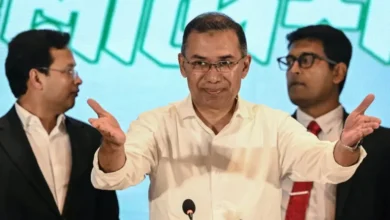Finance Minister launches $1.1 bln annual non-oil revenue reform to boost fiscal sustainability
The dual focus on monetizing state assets and implementing targeted corporate taxation reflects the government's resolve to manage its finances more effectively, maintain revenue flexibility, and lay the groundwork for long-term economic resilience.

In a strategic step to diversify Kuwait’s sources of income and reduce its reliance on oil, Minister of Finance and Minister of State for Economic Affairs and Investment, Eng. Noura Al-Fassam, unveiled a comprehensive reform package designed to generate sustainable non-oil revenues of approximately 336 million Kuwaiti dinars (around $1.1 billion) annually. The initiative aims to support the general budget and ease mounting fiscal pressures.
As part of this reform, Al-Fassam approved two pivot regulations set to take effect on July 1, marking a significant shift in Kuwait’s fiscal policy. These measures reflect the government’s broader economic vision to mobilize internal financial resources, in alignment with Kuwait Vision 2035, reports Al-Rai daily.
The first regulation involves updating usufruct and service fees for state-owned real estate. This pricing revision is expected to more than double revenues from these assets, increasing them from 70 million to 156 million dinars annually, thereby contributing an additional 86 million dinars (about $275 million) to the budget.
The second regulation introduces a 15% tax on multinational enterprises (MNEs) operating in Kuwait. The tax will apply to 300 corporate groups—comprising 45 Kuwaiti and Gulf-based firms and 255 foreign entities—and is projected to generate 250 million dinars (approximately $800 million) per year. While actual tax revenues will be recorded in the following fiscal year, the combined impact of both reforms will immediately reflect an increase of KWD 336 million in this year’s revenues.
According to informed sources, the primary goal of these measures goes beyond simply increasing income. They form a critical part of the government’s shift toward sustainable financial management that is resilient to oil market volatility. The reforms also reflect a practical implementation of long-discussed strategies to expand non-oil revenue streams.
Minister Al-Fassam emphasized that this economic shift includes fiscal discipline and expenditure rationalization, both of which are key pillars of Vision 2035. She stressed that the reforms are instrumental in building a more diverse economy, enhancing legislative quality, attracting foreign investment, and creating jobs for the nation’s youth.
Officials note the growing importance of these measures, particularly given Kuwait’s projected budget deficit of 6.3 billion dinars ($20.5 billion) for the 2025–2026 fiscal year. With estimated revenues at 18.231 billion dinars ($59.2 billion) and expenditures expected to reach 24.538 billion dinars ($79.7 billion), the reforms aim to reduce the fiscal gap and create the space needed to fund major development projects.
The dual focus on monetizing state assets and implementing targeted corporate taxation reflects the government’s resolve to manage its finances more effectively, maintain revenue flexibility, and lay the groundwork for long-term economic resilience.












